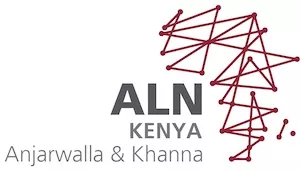- within Finance and Banking topic(s)
- in Asia
- in Asia
- in Asia
- in Asia
- within Antitrust/Competition Law, Transport and International Law topic(s)
Over the past few years, we have witnessed the evolution of ESG (environmental, social and governance) matters and their impact on businesses in Kenya firsthand, particularly in how ESG principles influence lending decisions. How that trajectory will be impacted by the new direction the United States is taking, essentially extinguishing any reference to DEI, climate change, and "woke" issues, remains to be seen. ESG will continue to be significant to Kenya and the region since climate change is real, and in Europe, where many DFIs are headquartered, environmental, social and governance issues remain relevant.
The Growing Role of ESG in Finance
Kenya's ESG journey dates to 2008 when former President Mwai
Kibaki launched Vision 2030. This ambitious blueprint aimed to
transform Kenya into a middle-income, newly industrialised nation
while prioritising sustainable development. In our experience the
financial sector in Kenya is no longer just incorporating ESG
principles—it is actively enforcing them. A recent
transaction we handled linked interest rates directly to a
company's social and diversity metrics, clearly showing that
sustainability can be a key determinant in access to capital
A defining moment in Kenya's financial landscape was the introduction of ESG-linked loan conditions. In a recent financing transaction involving a major telecommunications company, the interest rate structure was directly tied to the company's adherence to specific social and diversity metrics. If the company fails to meet these targets within the agreed timeframe, it will face a significant increase in loan pricing.
Legal Developments and Carbon Markets
One of the most significant regulatory advancements in Kenya's
ESG landscape has been the introduction of the Climate Change
(Carbon Markets) Regulations in May 2024. These regulations provide
much-needed clarity on governance, institutional frameworks, and
the procedural requirements for developing carbon projects in
Kenya. Importantly, they align with the Climate Change (Amendment)
Act, 2023, ensuring that carbon credit projects operate within a
structured legal environment.
A parallel milestone was the announcement of Africa's first REDD+ carbon registry in Kenya, expected to be operational by mid-2025. This registry will facilitate lifecycle tracking of REDD+ carbon credits, mitigating risks of greenwashing and bolstering Kenya's position as a key player in the global carbon market.
The Green Bond Revolution
Kenya's foray into green finance took a major step forward in
2016 with the establishment of the Kenya Green Bond Programme,
backed by the Kenya Bankers Association, Nairobi Securities
Exchange, Climate Bonds Initiative, and FSD Africa. The programme
facilitated the issuance of the first Kenyan shilling-denominated
green bond on the London Stock Exchange, a landmark achievement for
sustainable finance in East Africa.
One of the most notable green bond successes in Kenya was the KES 5.7 billion (approx. USD 43.9 million) issuance by Acorn Holdings Limited, which was fully repaid ahead of its November 2024 maturity date. The funds enabled the development of environmentally friendly accommodation for 5,000 university students in Nairobi. This success underscores the viability of green bonds as a financing tool for low-carbon, resource-efficient projects.
Regionally, green finance is gaining momentum. In neighbouring Tanzania, the Tanga UWASA Water Infrastructure Green Bond was oversubscribed by 103 percent, raising TZS 53.12 billion (approx. USD 19.3 million). This funding will expand clean water access for 6,000 households while supporting environmental conservation efforts.
Unlocking Green Investments Through New
Initiatives
In November 2024, Kenya launched the County Green Investment
Facility, to bridge financial gaps that hinder green projects.
Fully funded by FSD Kenya, the initiative will support 10 counties
in developing 50 bankable green projects. PwC Kenya is spearheading
due diligence and investment proposal development, ensuring that
each project is matched with suitable financial instruments, from
private equity and development finance institutions to bonds and
grants.
Projects under consideration include a 20-megawatt solar farm in Makueni, an eco-tea factory in Nandi Hills, and solar farms in Laikipia. These initiatives are set to redefine Kenya's renewable energy landscape, driving both economic and environmental benefits.
A complementary development is the launch of the Dhamana Guarantee Company in 2024. Backed by the Private Infrastructure Development Group, Cardano Development, FSD Africa, CPF Financial Services, and the African Development Bank, Dhamana addresses a critical gap in green finance: the lack of local currency guarantees for inclusive green investments. With an initial funding pool of USD 14.3 million, the facility aims to scale up to USD 20 million, unlocking sustainable investment potential.
The Financial Sector's Commitment to
ESG
The banking sector has emerged as a key driver of ESG integration
in Kenya. In November 2024, the Kenya Bankers Association published
the Landscape of Sustainable Finance in Kenya's Banking
Industry report, revealing the following key insights:
- 93% of surveyed banks are committed to supporting the Sustainable Development Goals (SDGs).
- 80% actively monitor macroeconomic impacts on their performance.
- 87% have credit policies ensuring responsible and sustainable lending.
- 67% support economic inclusion for minority groups, including persons with disabilities, women, youth, and indigenous communities.
This commitment reflects the broader financial sector's recognition that sustainable investments are ethical imperatives, critical to long-term profitability and resilience.
Challenges and Global Influences
Kenya's ESG advancements are unfolding against a complex global
backdrop. The country through President William Ruto has been vocal
about the need for a new climate financing mechanism that addresses
the unique needs of developing nations. In a recent letter to The
Economist, he urged increased financing for least-developed
countries. However, global ESG policies remain in flux,
particularly considering shifting priorities in the United States.
The impact of these changes on Development Finance Institutions
policies in Africa remains uncertain, though it is unlikely that
ESG considerations will be abandoned.
Locally, the enforcement of ESG-related legal frameworks is becoming more robust. In December 2024, Kenya's Supreme Court upheld a KES 1.3 billion (approx. USD 10 million) award to individuals affected by lead poisoning caused by the Metal Refinery EPZ in Mombasa. The ruling set a powerful precedent for corporate accountability, emphasising the necessity of environmental compliance in industrial operations.
The Path Ahead
Kenya has significantly progressed in embedding ESG principles
across its financial, legal, and investment landscapes. With robust
regulatory frameworks, increasing corporate accountability, and a
growing appetite for green finance, the country is positioning
itself as a leader in sustainable development within Africa.
As ESG frameworks continue to evolve, the next frontier for Kenya will be scaling up sustainable investments to address climate change, resource efficiency, and social equity.
Contributors
1. Rose Georgina Onyango – Associate
2. Brian Kibet – Trainee Lawyer
The content of this article is intended to provide a general guide to the subject matter. Specialist advice should be sought about your specific circumstances.




